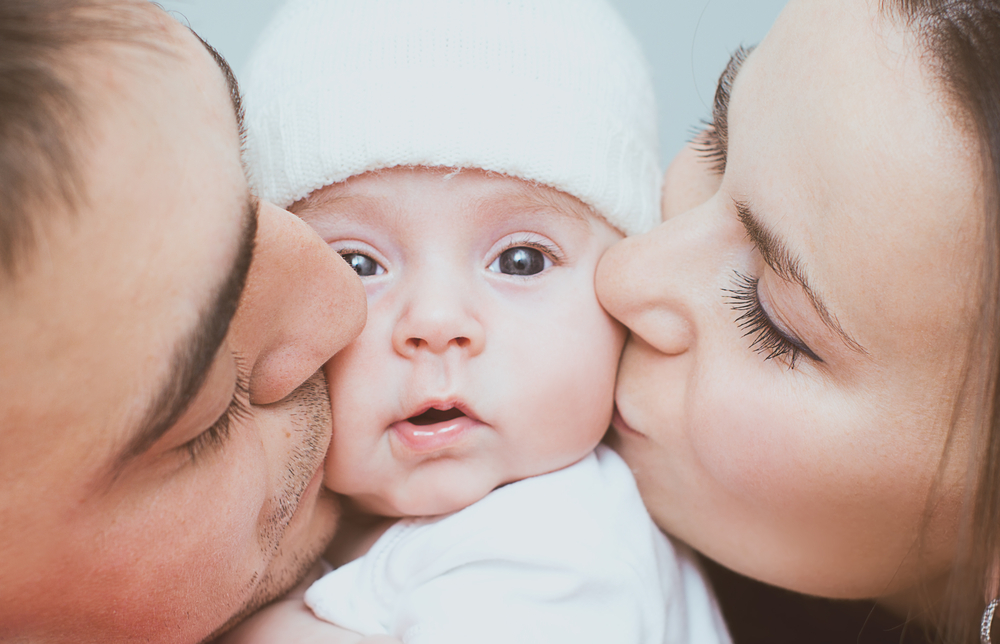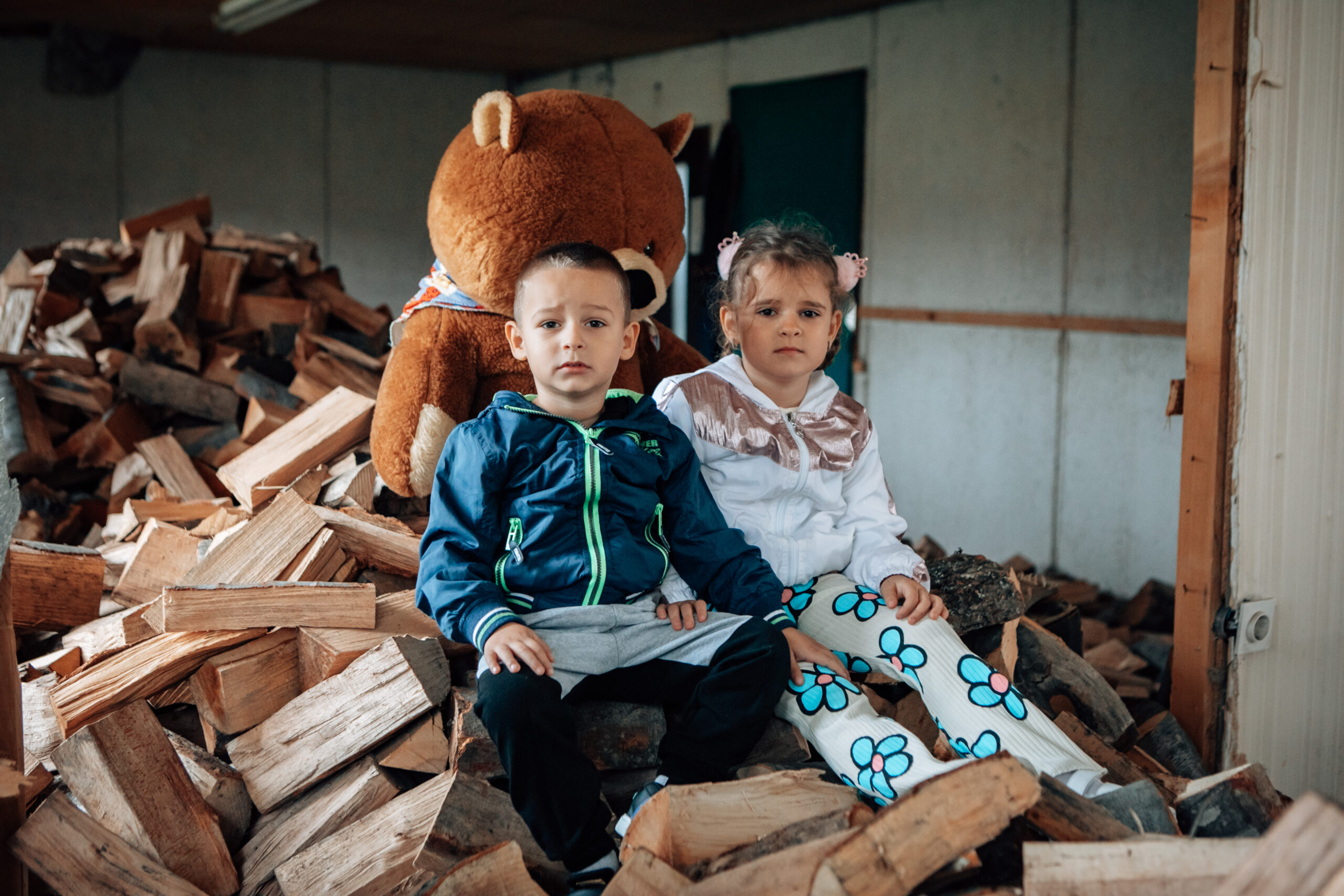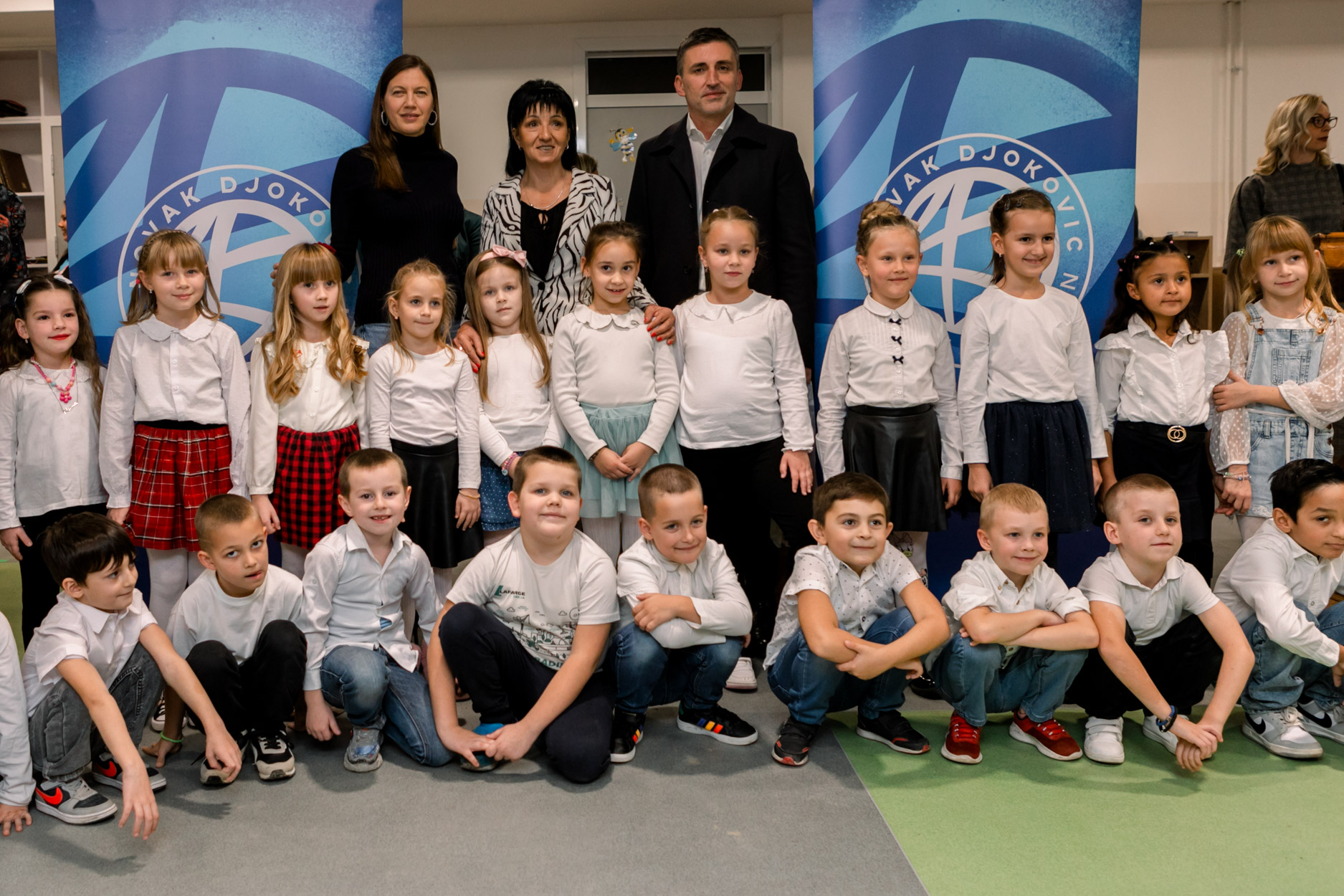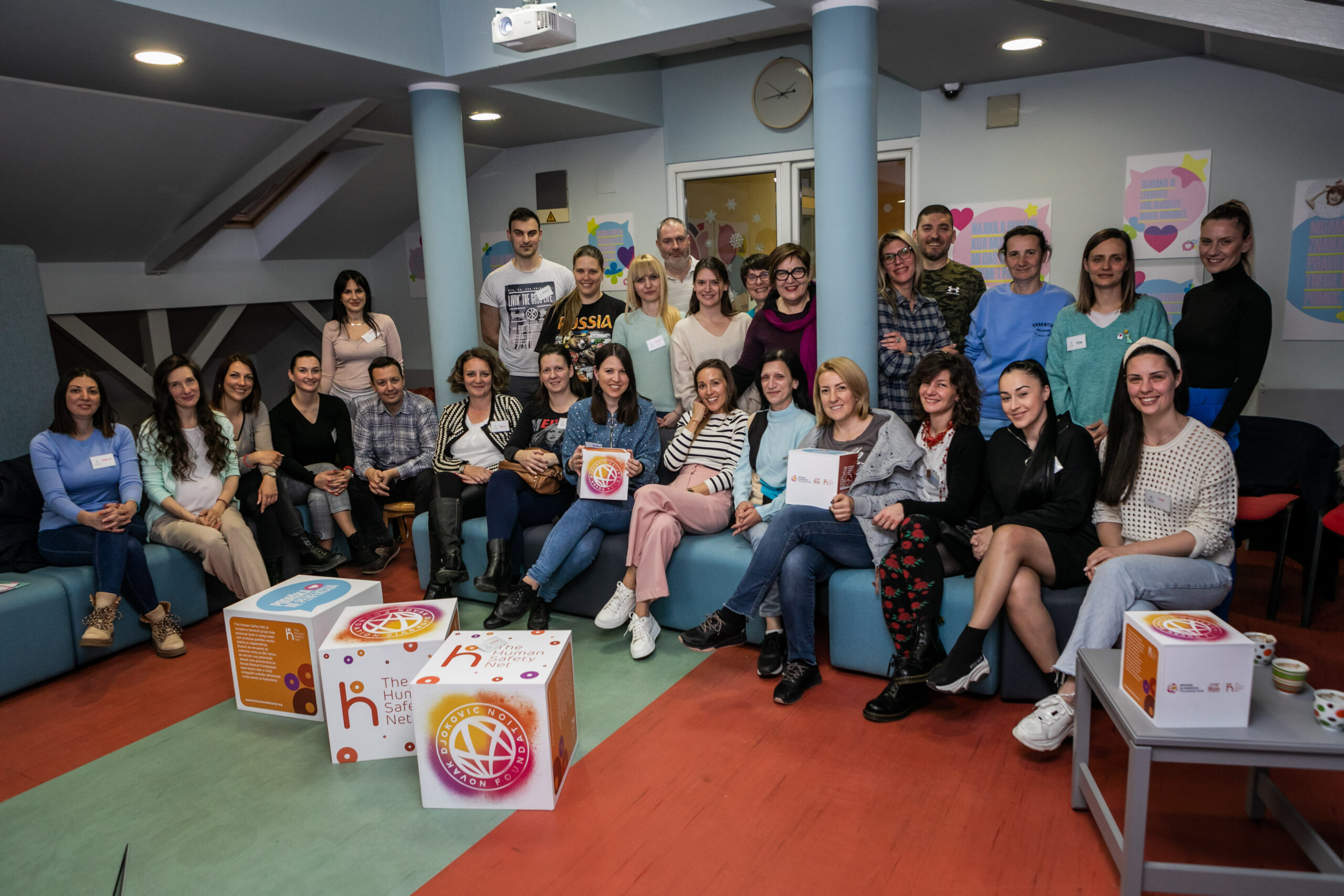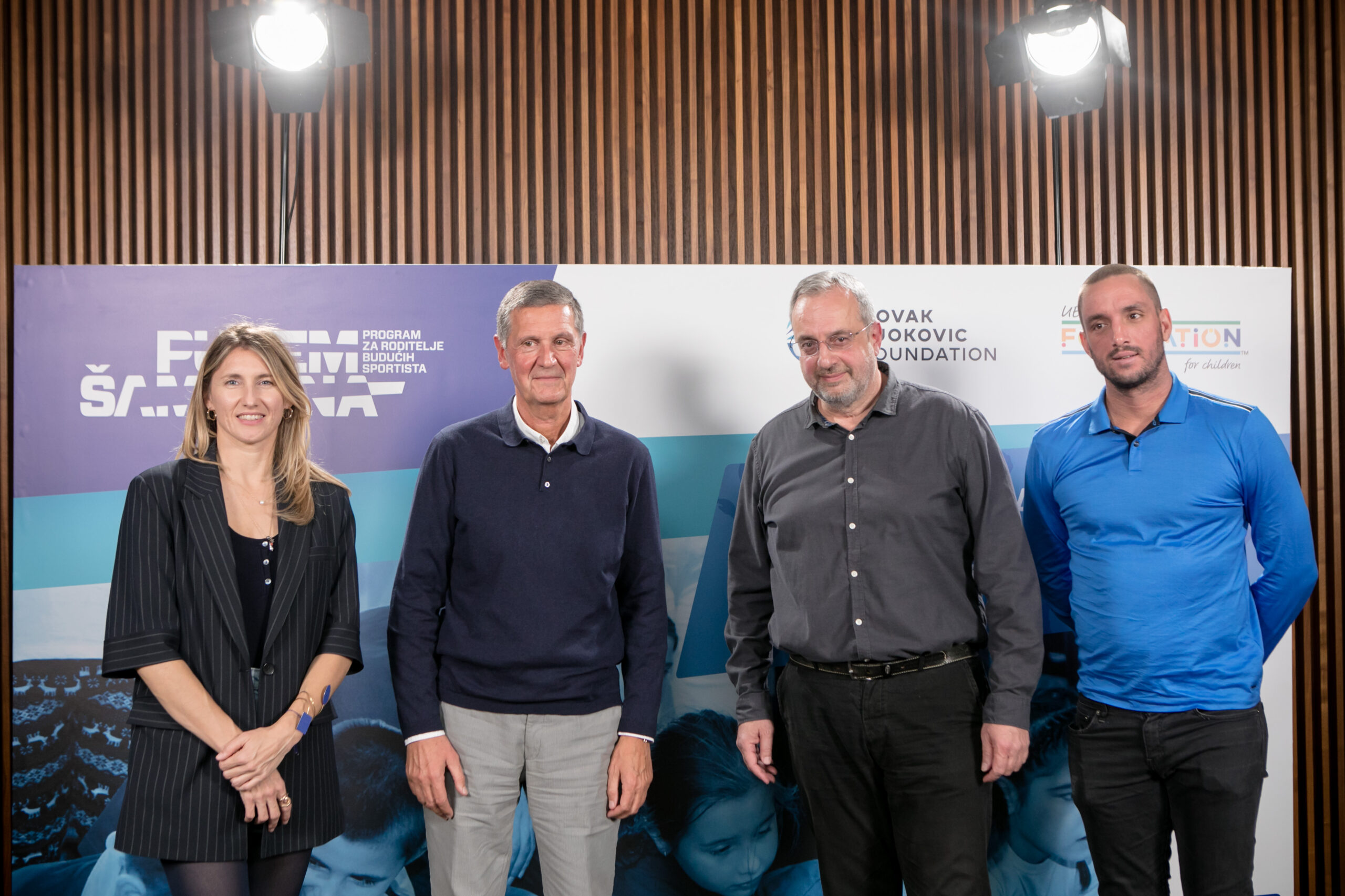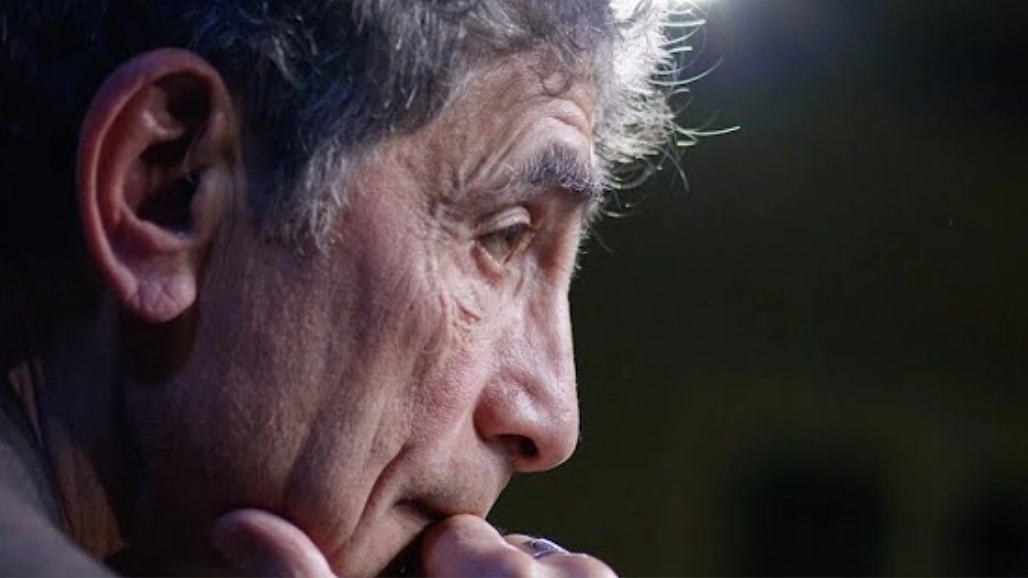Infants and toddlers face stressful events in their everyday lives, just as adults do. Many people think that children younger than three years won’t be as impacted by stress because they „won’t remember“ or don’t understand what is happening. However, we now know from research on brain development and toxic stress that even tiny babies are impacted by stress. Young children don’t have the means or the skills to manage their stress in appropriate ways. Children depend upon us to help them. Therefore, as parents and caregivers, we need to recognize when children are feeling stressed and help them feel better.
When a baby feels stress, the brain responds by releasing the stress hormone cortisol, which activates the body’s stress response. If a young child’s stress response is activated in the context of supportive relationships with adults, the physiological effects of stress are buffered and return to baseline levels. In this way, the challenges of meeting new people, entering a new childcare setting, getting an immunization, or overcoming a fear of animals each can be positive stressors if a child has the support needed to develop a sense of mastery. On the other hand, if the stress response is extreme, long-lasting, and buffering relationships are unavailable to the child, the result can be toxic stress that can cause permanent damage to the developing brain, with long-term consequences for learning, behavior, and both physical and mental health.
Physical discomforts, such as pain, tiredness, cold, hunger, and over-stimulation as well as separation from parents and caregivers can be the prominent causes of stress in babies. Loud and new sounds may also bother them and increase their stress. Given the fact that babies can’t put words to their distress, watching their behavior can offer significant clues about the presence of stress.
Signs of stress in babies
The following signs may suggest that your baby is feeling stressed:
- Cries uncontrollably
- Displays peculiar movements (e.g. arches her back while crying)
- Has trouble while sleeping
- Thumb sucking
- Suffers from digestive disorders
- Avoids an eye contact or avoids expressing her feelings
Importance of early caring relationships
Whether babies’ early relationships are largely positive or negative significantly impacts their ability to manage stress. From birth to age 3, stress can have an especially adverse effect on brain development. When children have positive early relationship experiences, they develop emotionally secure attachments with their caregivers that can buffer stress at various levels of intensity. If stress is severe and persistent, it becomes toxic and the emotional buffers provided by secure relationships are crucially important. When children have to cope with tolerable (less intense and temporary) stress, emotionally secure relationships help children regulate their responses and, once the stress subsides, refocus on exploration and learning.
Strategies to buffer your young child from the toxic effects of stress
- Provide your reassuring presence. Staying close to your child, and letting your child stay near you, helps your child feel safe. Remove any physical dangers, respond every time baby cries, and follow predictable daily routines so that she learns what to expect from her world.
- Offer plenty of physical affection. Affectionate physical contact triggers the release of several stress-busting chemicals in the brain that has a calming effect, and help switch off the production of cortisol.
- Talk in soothing tones about how you are keeping your child safe. Give simple explanations of what is happening. This is reassuring even if your child doesn’t understand your words.
- Think like a baby. If we take a moment to put ourselves in babies’ position, we realize it may not be quite as stress-free as we initially thought. The better you understand your baby’s perspective, the better your chances of minimizing stress.
- Manage your own stress first. Don’t underestimate your baby’s ability to read and mirror your negative emotions. Studies show that babies, even newborns, get distressed when their caregivers become distracted, upset or emotionally unresponsive.
- Engage in serve and return interactions. Healthy relationships between children and caregivers are important for building strong brains. Starting with newborns, a responsive child-caregiver bond builds a strong foundation for development through serve-and-return interactions.
Serve and return works like a game of tennis or volleyball between child and caregiver. The child „serves“ by reaching out for interaction with eye contact, facial expressions, gestures, babbling, or touch. A responsive caregiver will „return the serve“ by speaking back, playing peek-a-boo, or sharing a toy or a laugh.
These back-and-forth exchanges are the building blocks of children’s early brain development. They help children learn how to control their emotions, cope with stress, and learn skills that will serve as a foundation for later development. A caregiver who is sensitive and responsive to a young child’s signals provides an environment rich in serve-and-return experiences.
While you may not always be able to shield your child from stressful events, the good news is that your relationship with your child is the buffer that protects from their effects. A baby’s environment and experiences in the first year of life have a profound impact on their future. By loving them and meeting their needs now, we’re helping them to feel secure in this big world and become more stress resilient later in life.

